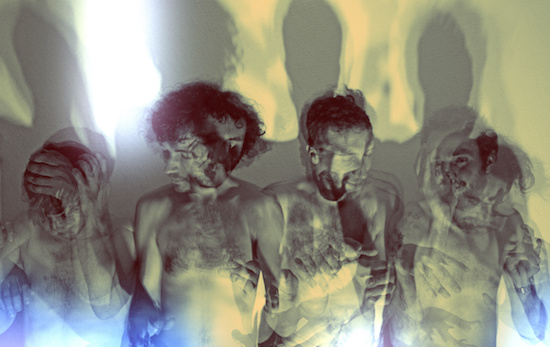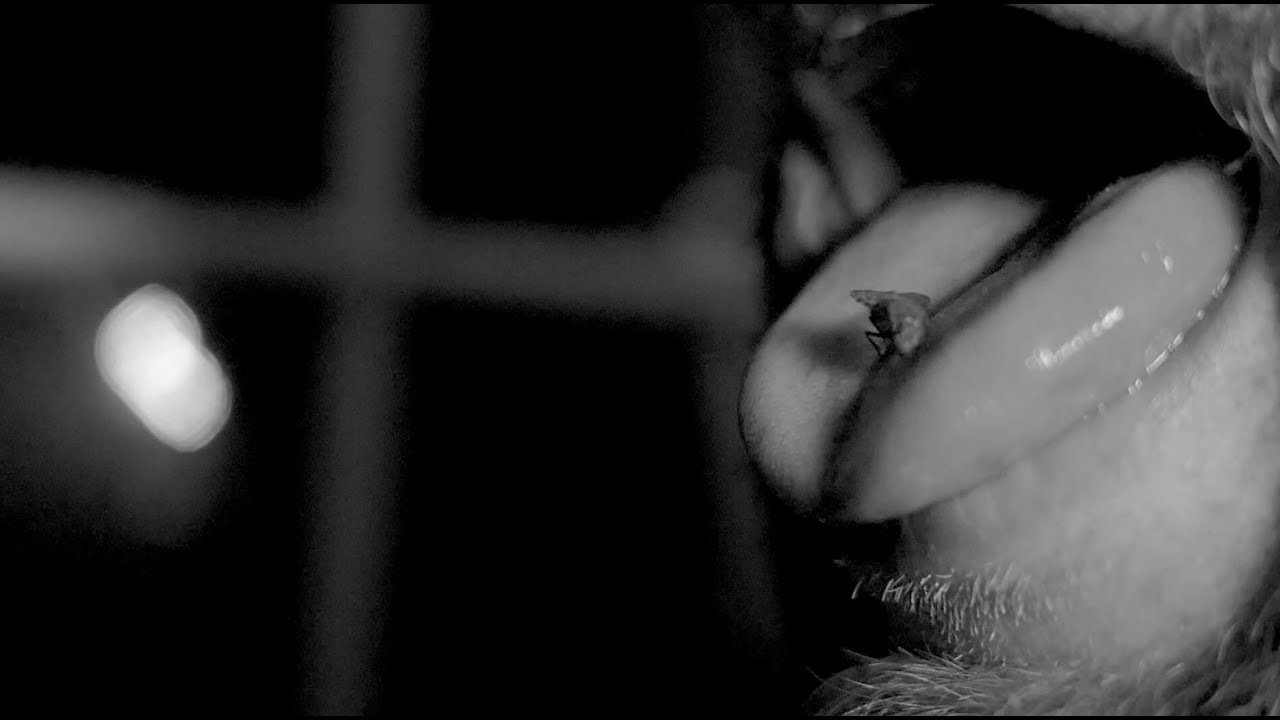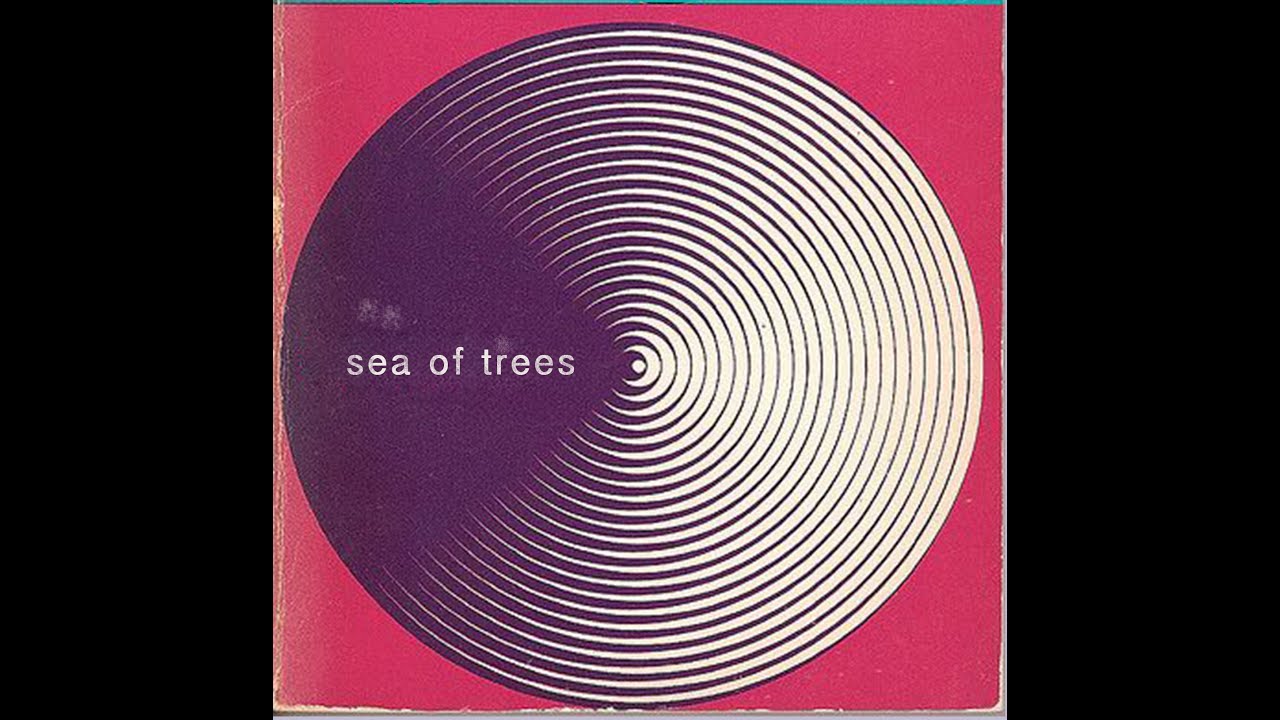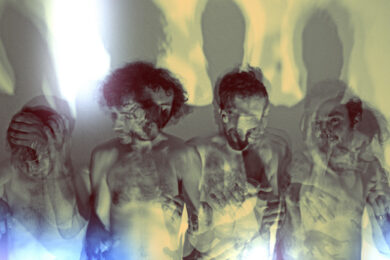On the day I speak to the intense Bristol-based noise rockers Spectres, Royal Blood are nominated for three Brit Awards. This is relevant because Spectres have beef with the Brighton duo, which stems back to an aggressive putsch from Royal Blood’s management for Spectres – in their guise as Bristol gig promoters and patrons of respected indie label Howling Owl Records – to put the band on in the city. Having cast their ears over Royal Blood (verdict: "The music was awful"), Spectres politely declined. The next time their paths crossed, the more forceful management spiel went along the lines of, "You’ll regret it if you don’t put this band on, they’re going to be huge, they have the same management as Arctic Monkeys", but again Howling Owl declined. The final straw was an excessive guest list request at a Bristol festival where Howling Owl were running a stage, with Royal Blood’s management threatening that if their demands for free spaces weren’t met, the agency (who also represented some big-hitting headliners) wouldn’t work with the promoters again. "FUCK Royal Blood and all they stand for," was the vibe in the Howling Owl camp, and this sentiment was realised in a limited run of T-shirts bearing the legend, "FCK RYL BLD". "No bitterness, just pure bemusement," said Spectres’ Joe Hatt, the band’s singer and guitarist, in a piece he penned for Crack magazine, who included Royal Blood’s debut on a list of the worst albums of 2014. "Buy this album and play it loud in your home," Hatt continued. "Look at yourself in the mirror and witness a piece of you die inside as a tepid warmth flows through your body."
This is a lengthy anecdote to open a feature introducing a new band, but it is important. In an era where bands are happy to play it safe and aren’t willing to air provocative views lest it harm their chances of mainstream acceptance, the fact that Spectres are taking a stand against what they consider to be mediocrity in music is hugely refreshing. This uncompromising approach is reflected in their exceptional debut album Dying, released on Nat Cramp’s ever-excellent Sonic Cathedral label. Whereas most bands influenced by the 90s shoegaze scene tend to focus on the dreamy, atmospheric side of the oeuvre, Spectres have taken MBV’s infamous ‘holocaust’ section as their jumping-off point, using this distorted racket as the abrasive soundbed for Hatt’s deeply dark and twisted tales of modern life (and death). "Not for sissies," according to 6 Music’s Lauren Laverne, a statement supported by anyone who has seen the band live, where they play with a ferocious intensity and at a volume level designed to send the lily-livered scurrying for the nearest exit.
The band seem to relish repelling any prospective fans, from the album’s grotesque cover image (an extreme take on Ricky Gervais’s Twitter bath selfies) to the cheery title and overall mood of despair and decay that permeates the record. The gatefold features an Ouija board and anyone reading the enclosed lyric sheet might be tempted to pack Hatt off for therapy. "If we’re in this pit together then I’ll be the one hacking the hands off," is the opening gambit of ‘Where Flies Sleep’, while ‘Lump’ begins with Hatt intoning, "I’m dragging a dead horse through the street/ I look down and all I see is meat" over a terrifying dirge. Consider the evidence and it soon becomes clear that their dislike of Royal Blood isn’t born of professional jealousy – Spectres are the antithesis of Royal Blood and are as likely to be nominated for a Brit Award as Danny Dyer is for an Oscar. While the first wave of shoegaze bands were often criticised for having nothing to say, Spectres are fully engaged and bristling with intent.
Spectres came together in the town of Barnstaple, north Devon, about four years ago, formed from the ashes of two middling indie bands – LOAD.CLICK.SHOOT! ("Foals-y, jerky, weird… spaz-pop I think it was called," according to Hatt) and Fen Tigers ("run of the mill, mid-noughties indie"). Of the two, the former had more success, but both came to an end at the same time. Hatt (Fen Tigers) already knew Adrian Dutt (guitar, and 50% of Howling Owl alongside Hatt) and Darren Frost (bass) of LOAD.CLICK.SHOOT! through their passion for skateboarding, plus all three shared a love of heavier stuff (A Place To Bury Strangers and Sonic Youth are key influences) than their bands were playing. "It was inevitable that we’d do something together," says Hatt.
That something was Spectres (completed by Andy Came, on drums), but the new band was neither welcomed nor liked in north Devon, where the live music circuit was dominated by lame covers bands, white reggae acts and wannabe Jack Johnsons. "When we first started we were on bills with these kind of acts and the reaction was actually pretty hilarious," explains Hatt. "The hostility that we got made us what we are because we just used to play harder. But after a while that got boring and we knew we had to move."
So Spectres decamped to Bristol, where it took them a while to find their place. After a few unsuccessful and confrontational gigs, they were shunned by the city’s key promoters. But instead of feeling sorry for themselves they opted to go it alone, founding Howling Owl Records to release records by the like-minded acts they had started to meet (The Naturals, Towns, Holy Stain) and promoting their own gigs, held in idiosyncratic venues across Bristol as they were persona non grata at most of the traditional gig venues. As well as releasing records, the multi-talented quartet also sporadically produce a darkly comic zine, Dark Habits, and put on art shows as Bulb. Hatt and Dutt take up their story and discuss Dying over the phone from Rise Records in Bristol, where Dutt is currently employed.
Most bands head to London to seek their fortune, but you went to Bristol. What made you decide to move there?
Joe Hatt: I was more familiar with London. At that point I’d only been to Bristol a handful of times, but it felt right – maybe because of geography. It was closer [to Barnstaple] so there was less risk. We’d heard so many stories of friends in bands who moved to London to "make it" and it never happened because they’re not good enough, but also because it’s so dog eat dog. And none of us were all that aspirational. Not then at least. We know people who moved there who can’t even practice anymore because they have to work two jobs. So we knew we had to move, and Bristol was just the closest place to us that had a vibrant music scene where we thought we’d be able to fit in.
How did Howling Owl come together?
JH: When we moved to Bristol we were expecting to fall into a scene straight away and meet like-minded bands. But it took a lot longer. The first shows we played were similar to the ones in Barnstaple – with acts that weren’t like us at all. It was because we didn’t know anyone and the promoters would just take any band on in the support slot regardless of what they sounded like if they thought they might bring a few people along. The first few months were actually demoralising. We were still the outsiders.
I read somewhere that those early Bristol gigs could get quite confrontational – some of them ended in violence. Having met you all, you seem like nice guys, so what happened?
Adrian Dutt: It’s never been us, it just seemed to be that at the shows we played something would always happen. We played in Reading last year and there was a guy there who was so against the level of noise that was happening that he was desperately trying to unplug everything. In the end he just lobbed a full pint at Joe and got arrested. I suppose we are looking for that sort of a reaction. We want to take people out of their comfort zones.
JH: Eventually we got on a bill that was suited to us at the Louisiana and we met a few people who were into it and in bands too. A few months later we’d surrounded ourselves with other acts like Holy Stain and Towns. Howling Owl came from that – the excitement of making new friends. We realised no one was putting anyone else out, so we thought we’d do it. Me and Adrian had a history of doing skateboard and music magazines back in north Devon, so we’ve always had that in us – if we want to promote something we’ll put some creativity into it and get it out there.
That DIY ethic?
JH: Yeah, that’s exactly it. Where we came from, no one did anything like that so we had to do it ourselves. It was the same in Bristol. There was no attention on these bands, but to us it was the most exciting thing in the world. It was going to be one tape and one gig. We thought putting a gig on in Bristol would be a big achievement, but then the tape went really well. It was Spectres, Holy Stain and Towns and it sold out quickly, so we thought we’d carry on and it snowballed from there.
AD: Hardly anyone wanted to take a chance on us. We had this nice new project and it was really exciting for us to be looking at weird places to do stuff, and to try and make things interesting for people – to put on events that were memorable. That pushed us forward in both sound and label. The first gig we promoted was in a crypt under a church. We put on four bands that we had met. We had two stages at opposite ends of the crypt and us and The Naturals played together for a few minutes; as we finished our set they started theirs. We did an old diving school, courtrooms, police cells – anywhere we could find in Bristol that would have us. We wanted to create a whole experience, a different atmosphere. It’s great when people come up to us and say, "Oh yeah, you’re the guys who put on that gig there, and this happened and that happened…" That’s much more positive for us to hear than people just going to watch a normal four-band bill, having a drink at the bar and then going home. We want to have fun and push the boundaries a bit. We like to challenge ourselves.
There’s a real anger and intensity to Spectres. Is the way your present yourselves and your sound a reaction to the times, or is it more of a personal statement?
JH: It’s definitely a reaction to mediocrity. We’ve done a lot of tours and gigs and played some awful shows with some non-progressive bands. But instead of demoralising us and making us want to give up, it has definitely made us… it is quite angry I suppose. It is a reaction against the mainstream. When we were writing the album, there were a couple of songs that we knew we could polish up and make a bit nicer, but when we came to recording it we just thought that’s not us. And by sticking to what we want to do, unlike a lot of bands do who maybe go a bit poppier if they want to reach a wider audience, we’ve gone the other way and hoped that people will come around to that and enjoy it for that reason. We thought we might be a bit too heavy for Sonic Cathedral. When Nat came to see us we were worried, because live it’s even more horrible. There’s no front. I hope people get the rawness.
AD: We’re quite cynical. We have a weird outlook on life and we don’t take anything for granted. Even when good things happen, we’re always like, "When’s this going to end?" Plus, we’re four really great friends and we talk about everything that’s going on, and some of that definitely comes out in the music. We never intended Dying to be a massive hit. We just wrote the album that we wanted to write. There was no one telling us what to do, or saying, "Oh I think that’s a bit much". It was all about how far we could push ourselves in the studio.
Most of the bands that have been influenced by shoegaze and that period of indie music, tend to focus on the dreamy, atmospheric side of things. But what appeals to me about Spectres is that your jump-off point is the ‘holocaust’ section of MBV’s ‘You Made Me Realise’. I think that’s very brave – to be so abrasive and loud – but there is still a real beauty in the music you make. What is it about noise that appeals to you as a band?
JH: There are bits on our record and in our live set, where we just want people to focus on that and nothing else. There’s so much around at the moment, to watch and listen to, that can just pass you by without registering anything. That’s the worst thing that anyone could say about us. Y’know, "They’re alright, can’t really remember." By making people have to listen and take notice, and not be able to chat to their mate or text someone during our set – that’s really important to us. Even if only one person out of 100 actually then likes it, we’ve still had a reaction. When we’re in our practice room, it’s such a small, dank, horrible space and the only way to get through it is to lose ourselves in the feedback or whatever noise we’re creating. We’re a product of that space. We practice for two hours a week and we don’t really talk to each other. It’s all of us getting… I’m not saying we’ve got much to be angry or frustrated about, but it’s definitely a release of something.
AD: It’s about taking yourself off to another place. Myself and Andy are into heavier bands than Joe and Darren – we have the shared influences of My Bloody Valentine, Sonic Youth, etc. But we all have other interests – Joe’s really into harsh electronic music. I love bands like The Locust and The Blood Brothers. Although they’re not about big walls of noise, the guitars are still really abrasive. There’s something about creating a space where you don’t really know what’s happening and you’re… lost in the noise, as cheesy as that sounds. You can forget yourself. There aren’t many bands around that do what we do. We want to be so loud that you can’t really be distracted by anything else.
The last thing I’ve wanted to do when I’ve seen you live is get my phone out and start filming it…
AD: That’s good!
Lyrically it’s… dark would be an understatement. You seem troubled. Joe, you delve right into the ugly, horrible side of life and death. It’s very honest and raw. Do you have a fertile imagination or are you writing about actual life experiences?
JH: To be honest, a lot of it is very literal and close to home or experiences of people close to me. When it comes to lyrics it takes me a long time to write them. The way we write songs is quite weird – we all write the music, and we’ll record it on my phone. Then I go home and put the headphones in and put it on a cycle and write to it. All in, ‘Sea Of Trees’ took about six months to write. I’m not sure what it is. I’ve got stuff written down – lines here and there, and ideas and themes and I have to wait for the right song to connect. It’s weird. In the early shows we were playing on shit sound systems and the lyrics were totally lost. That was annoying, because I spent so long on them but no one could actually hear what I was singing.
Adrian, do you ever worry about Joe when you read his lyrics?
AD: I think he was a troubled child [laughs]. Spectres is an outlet for his angst. He’s a writer and an artist and he’s always been like that. I think other people might worry, but hopefully they’ll be able to connect with it. I lived with Joe for a bit once and I came home late one night and he had his headphones on, sat in his pants, surrounded by cans of beer singing to himself. He didn’t know I was there. It was horrible. When we were putting the artwork together I got to read all his lyrics. They are brave and close to home for Joe. We wanted people to be able to read the lyrics so people know that we’re not just making songs about anything – they have meaning.
The cover image is pretty repellent. The album’s called Dying and the music is punishing. It’s almost like you’ve gone the other way and are trying to put people off. There’s nothing there that’s pandering to the listener. It’s an extreme way of presenting yourself to the world, especially when the mainstream is so bland. Do you think a band like Spectres can succeed on their own terms?
JH: Hopefully we’ll stand out because our album doesn’t look like the other albums on the shelves, and our videos aren’t like the other videos out there. The title we had before we even recorded it, because it just felt right. The cover image had to be perfect. That photo was taken in a paddling pool in my garden and as soon as it was done we knew that was the one. We’d tried a few different ideas. It’s a guy called Pedro from Bristol. My girlfriend met him a couple of years ago through the arts scene. He’s become almost a weird mascot for the band and the label and also Bulb, which is the other side of Howling Owl, the arts stuff. We’ve worked with him on a load of things. He was in the video for Vessel’s ‘Red Sex’.
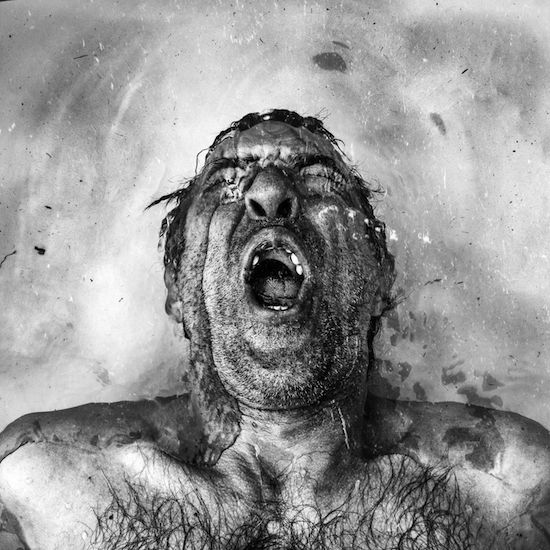
AD: This is just the way we’ve always done things. I work in a record shop [Rise] so I see covers every day and there’s some I love and some I hate, but I wanted ours to stick out. Every cover we’ve done we take ages over it to make sure we get exactly what we want. Hopefully, people will look at it and the image will stick with them. Even if they think it’s horrible they’ll want to find out more about us.
There is definitely a humorous side to what you do. That cover image is hideous, but in the same way that Ricky Gervais’s bath selfies are. It’s grotesque and bawdy, rather than stomach churning and disgusting.
JH: We do have a bleak outlook on everything, but we don’t take ourselves too seriously, even though on the record, there’s not a lot of humour there. The music is bleak, the lyrics are bleak, even the front cover is bleak… but then, I think when it comes to stuff like our videos and photos there is some humour there. It’s too easy to be all doom and gloom about everything all of the time. In general, there’s not a lot of light in what we do, but we really don’t take ourselves that seriously.
AD: We did a photoshoot for the NME last year and they wanted us to pay for a photographer and there were these guidelines for the shoot, but that’s not how Spectres or Howling Owl works. It wasn’t a reaction against the NME, because they’ve been really good to us, but it was another opportunity for us to have a little bit of fun. Joe came up with an idea and we went with it. We held up some things and it tenuously spelt out, "Spectres are Dying – don’t believe the NME." There was some other subliminal stuff in the picture too. We’ve got our tongues firmly in our cheeks a lot of the time and that comes out in the zines we make. We’re not just some moody band. They’re very much of a labour of love. This whole vision of being a band to us is a major project. It’s an outlet for all our creativity – we want to get our writing, illustrations and photos out there. That’s another side of us that we want people to see. As Spectres, the whole package is that we do all these other things as well. We’re not just here to make records, we want people to be exposed to all the different things we do.
You’ve got Howling Owl to the point where you could have released the Spectres album on your own label – what made you decide to work with Sonic Cathedral?
JH: It was quite a big decision, but we’re aware of blurring the lines between Howling Owl and Spectres. It was important for us to have an identity away from the label and not to be the Howling Owl house band. Putting out an album is a massive undertaking. We’ve put out two Oliver Wilde albums so we know what goes into it, so being on Sonic Cathedral has given us the freedom to focus more on the art side of things and everything else – the videos and the tour – rather than getting bogged down by the logistics. It was a no-brainer. We’d known about Sonic Cathedral for a few years – we actually discovered A Place To Bury Strangers on a Sonic Cathedral compilation album – and when the opportunity came up we couldn’t turn it down. I think Nat was actually a bit surprised. He kept asking why we didn’t want to put it out ourselves. It’s a sign of progression as well – it’s coming out on a non-Bristol label. It’s a big deal for us. It’s another step up. Although we’re entrenched in Bristol and we absolutely love it here, it’s nice to have some sort of recognition from outside.
Dying is out now on Sonic Cathedral. Spectres are on tour throughout February and March; check the label’s website for dates

